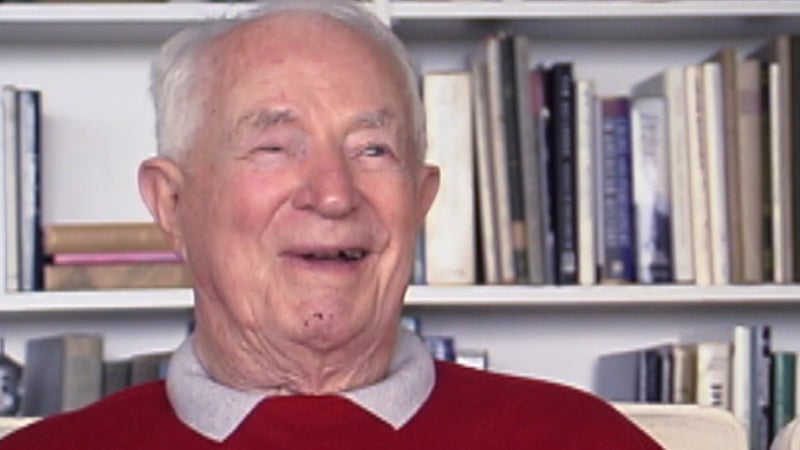Visual History with Nathan Juran
Interviewed by:John Landis
Born to shoemaker in the mountains of Austria, Nathan Juran was educated and worked as an architect before entering the entertainment industry as an art director in 1937. His credits as an art director include Charley’s Aunt (1941), How Green Was My Valley (1941), A Gentleman at Heart (1942), The Razor’s Edge (1946), The Other Love (1947), Kiss the Blood Off My Hands (1948), Tulsa (1949), Free for All (1949), Deported (1950), The Strange Door (1951), and the Bend of the River (1952). In 1941 Juran won the Academy Award for Art Direction for How Green Was My Valley and was nominated in the same category again for The Razor’s Edge in 1947. Following a stint with the OSS during World War II, in 1952 Juran turned to directing—mostly B-movies—and helmed such films as The Black Castle (1952), Gunsmoke (1953), Law and Order (1953), The Golden Blade (1953), Tumbleweed (1953), Highway Dragnet (1954), The Big Moment (1954), and Drums Across the River (1954), before turning to television during the late 1950s, 60s, and into the 70s. His television credits include episodes of the series Fury, The Three Musketeers, My Friend Flicka, Crossroads, Frances Langford Presents, World of Giants, Men Into Space, A Man Called Shenandoah, Voyage to the Bottom of the Sea, The Time Tunnel, Los in Space, Land of Giants, and Daniel Boone.
During this time, Juran also continued directing films, mainly in the fantasy and science fiction genre. Collaborating with special effects legend Ray Harryhausen, Juran directed such films as The 7th Voyage of Sinbad (1958), 20 Million Miles to Earth (1957), and First Men in The Moon (1964), which all contained his unique visual style. Juran’s additional film credits include The Deadly Mantis (1957) Hellcats of the Navy (1957), The Brain from Planet Arous (1957), Attack of the 50 Foot Woman (1958), Good Day for a Hanging (1959), Flight of the Lost Balloon (1961), Jack the Giant Killer (1962), Siege of the Saxons (1963), and East of Sudan (1964), Land Raiders (1969), and his final film, The Boy Who Cried Werewolf (1973).
For his directing efforts, Juran won a Life Career Award from the Academy of Science Fiction, Fantasy and Horror Films.
Juran passed away in October 2002.
Select Viewing Option:
Highlights